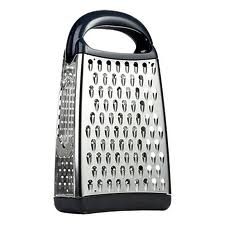I am reproducing the following letter to the editor printed in the current issue of The New Yorker in which the author hits a new note in the on-going discussion regarding the "value" of college education. More to my purposes is to point out his concern regarding the vast numbers who won't live as "prosperous" as their parents. This has become such an accepted proposition that it needs to be examined.
RE: THE COST OF COLLEGE
A letter in response to Nicholas Lemann’s article (May 28, 2012)
JUNE 25, 2012
Nicholas Lemann concludes his piece on student debt with a few words extolling the societal benefits of higher education (Comment, May 28th). Perhaps, but the dollar value of a college degree for many students is not clear. While there is considerable debate over the numbers, it seems that about half of all jobs in the foreseeable future will require a four-year college degree. If our society needs half our workers to do skilled work that doesn’t require four-year degrees, our obsession with making college available to all seems destined to disappoint. There’s a flip side to the studies that promote the benefits of college: if college-educated workers are now making eighty-four per cent more than high-school graduates, up from forty per cent more in 1983, it means that those who can’t afford a college degree have fallen radically behind. We need to respect the fifty per cent of workers who do so many essential jobs, and we need to pay them a living wage. Part of the desperation for a college education is that the gap between the rich and the rest of society has grown so large that everyone except the very few winners in our brave new economy will lead lives that are much less prosperous than those of their parents.
Tim Butterworth,Associate Fellow.Institute for Policy Studies,Chesterfield, N.H.
My father owned a succession of Jew Canoes. His last was that 1972 Eldorado which he kept in its own house in Florida. When I met Carrie her daddy drove a 1956 Coupe-deville. Her grandfather drove a Chrysler 300. They all consumed an average of 7 mpg. Our first vehicle was a Lambretta motor scooter. Our first car, a Fiat 500.
My father was a home builder. His house was a 2400 square foot rambler. He built much larger houses. Today they would be called McMansions. He referred to them as "Big-Mothas". Carrie's parents built a three level split with a two car garage.
My father would answer when asked, "how was the restaurant?" "It was fantastic, the steaks fell off the sides of the plate." My parents favorite restaurant was Momma Leones in NYC where you could order an antipasto that just kept coming, "and the shrimp. they never stopped bringing those shrimp". They lived large. It was the motif of their generations' lives."Do you want to be Queen for a Day?"
We met in college. Carrie stopped after her second year to earn the bread to keep us going. We studied liberal arts. I majored in American Thought. We were the first people in our families to go to college. We borrowed the money and paid our own way.
Our first apartment was advertised in the Washington Post as a studio at a very uptown address for $75 a month. It was on the ground floor, past the laundry. A dentist had offices on this floor and controlled more space then he needed. He sub-leased a triangular space to us. The walls were 17 ft long leading to a bathroom at the apex. No kitchen. We put a "bar" piece in as a room divider and stored a hot plate, rotisserie (which blew fuses on the entire floor), and pots and pans on the one shelf. We did dishes in the shower. We had a cat. When we invited our parents over the first time, we cued the doorman to help with the joke. This building had a turnaround drive. It is still a prestigious address. Neither set of parents could believe we lived here. The doorman showed them in. They entered the apartment, "living room" and when they asked to see the rest, were led into the tiny bathroom. I remember my father's reaction, "people can't live like this." We did until the city insisted that it was a non-conforming space and we had to leave to move into our next one room studio.
When we bought a house it was 768 sq ft.We had a dog, a cat, and a child. We expanded it to 1100 sq ft. over the thirty years we owned it.
We ate ramen, mac and cheese, and a lot of iceberg. We never, here comes the cliche', ever, felt poor. Our fortunes rose and fell, we moved. We ate better. I don't know how to measure our "prosperity". Clearly we didn't share our parents life style. Today you would measure our btu footprint as a fraction of our parents and it would be celebrated in some quarters as ecologically correct.
It is critical that we challenge the generally accepted definitions of "prosperity". The facts are that all over the world, the desire to live large as individuals, and to grow as nations looks all too similar to how our parents, and most of my gen live. We can't sustain that life-style. We have to change the paradigm. It begins by challenging the terms that set the tone, for what constitutes a prosperous life.






